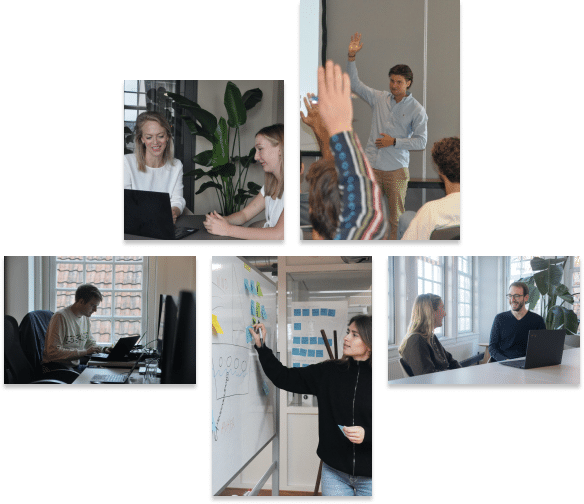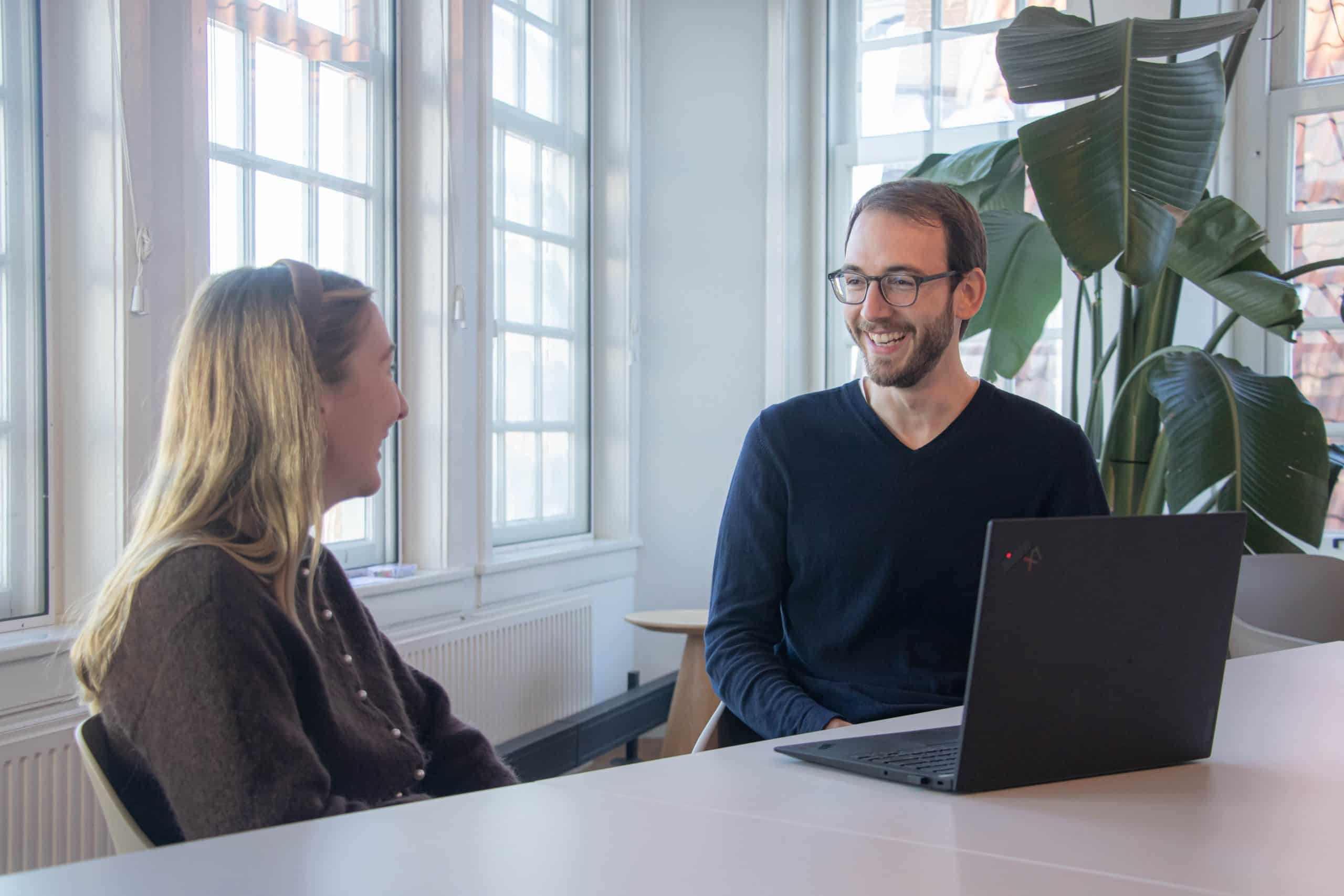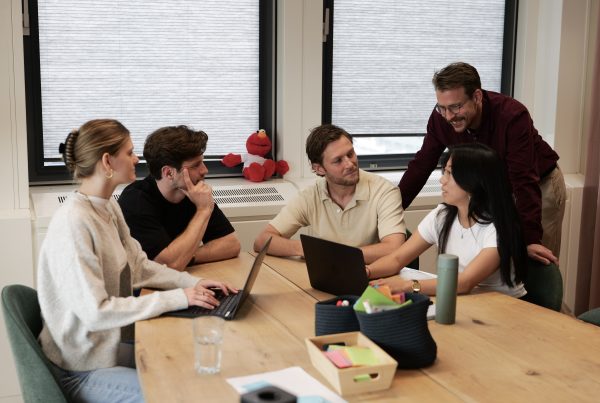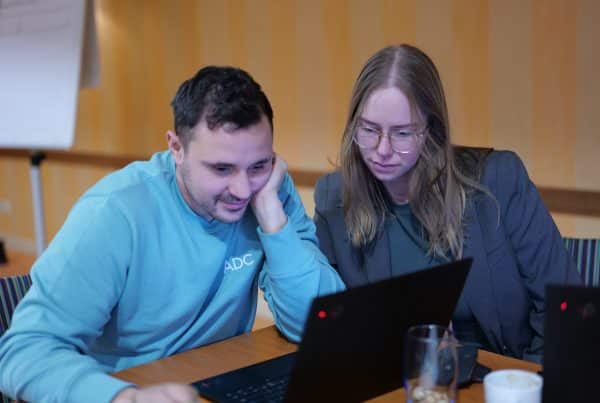At Amsterdam Data Collective (ADC), Senior Consultants work on many different projects across a range of sectors. They also allocate ten percent of their hours to personal development within their chosen Competence Centre. As a Senior Consultant in the Advanced Analytics Competence Centre, Maxime Schubiger specialises in image processing and computer vision. Together we discuss building up his specialisation, organising a hackathon, and the benefits of working collectively.
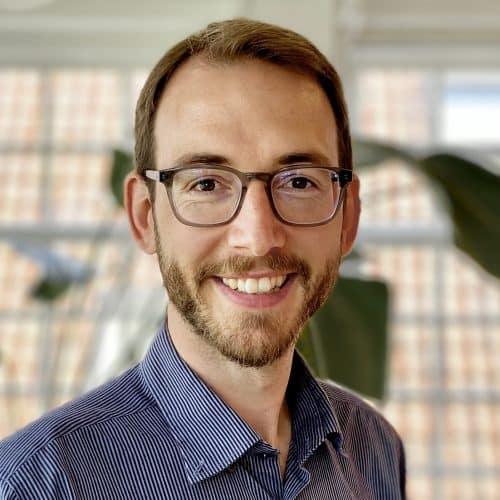
What education and career background led you to ADC?
After completing my studies in Switzerland, I dove into a PhD thesis on particle physics. I explored the difference between matter and anti-matter with the goal to explain how the universe works. This then led me to Amsterdam where I continued my career in academia with a Postdoc at Nikhef. This gave me the opportunity to work on several analyses and to coach PhD students. The skills that I developed during this period have been incredibly useful and applicable to my role at ADC.
After seven years of research in academia, I wanted to transition into a career where the direct impact of my work is more tangible. This is something I found in ADC. I appreciate that my data analysis skills can help companies work to create a positive impact on society. I have always been interested in using data science techniques to implement a data-driven approach. Data allows people and organisations to enrich their decision-making by making choices with tangible evidence.
“I am motivated by the fact that the code I write will be used to have a positive impact on a company and later society at large.”
What motivates you in your work?
I am motivated by the fact that the code I write will be used to have a positive impact on a company and later society at large. Additionally, on the more technical side, I enjoy projects where I can dive into the fundamentals of, for example, how a model works, how it is built, and what the various steps are.
How are you able to learn and grow at ADC?
Firstly, I learn new tools and techniques by working on different projects. Every project requires me to work on developing a different model, and similarly, every client has different requirements. Secondly, as a Senior Consultant within the Advanced Analytics Competence Centre, I can dive into a specialisation and become an expert on my chosen topic. Thirdly, the personal development trainings provided by ADC allow me to grow in both my professional and personal lives. For example, a recent training on “ways of working” gave me the tools to organise myself through time management and working towards the goals I have set.
“As a Senior Consultant in the Advanced Analytics Competence Centre, I am involved in elevating ADC’s approach to modelling and statistics.“
What is the role of the Advanced Analytics Competence Centre within ADC?
There are three Competence Centres at ADC: Strategy and Innovation, Data Engineering, and Advanced Analytics. Each one is responsible for developing a team of specialists who lead complex problem-solving exercises in projects and facilitate the growth of colleagues. This allows us to have more experts delivering specialised knowledge on a topic, which is then integrated into the overall project.
As a Senior Consultant in the Advanced Analytics Competence Centre, I am involved in elevating ADC’s approach to modelling and statistics. The aim is to achieve a common understanding of fundamental topics. Additionally, it is an opportunity to broaden our internal knowledge of cutting-edge modelling techniques. We help projects reach not only a high level of technicality through various tools, but also a way of working that provides understanding and context to further apply these tools.
How does ADC help you build your specialisation within Advanced Analytics?
Each of the five members of the Advanced Analytics Competence Centre are working on building a unique specialisation of our choice. These include natural language processing (NLP), multi-party computation (MPC), and computer vision to name a few. By deeply exploring these topics, we can better help our colleagues apply these techniques to projects.
I chose to build my specialisation in image processing by following an online course. Image processing is used almost everywhere, from self-driving cars to tumour detection in x-ray scans. A lot of valuable information can be extracted from images. I believe that it is an important tool to have in the company.
I look forward to applying my learnings to projects. For example, our project with Zero Hunger Lab, an affiliation of Tilburg University. The project addresses both food insecurity in the Horn of Africa and food waste in the Netherlands. Image processing can be used to analyse images from satellites to automatically extract information from these countries and build a model to predict food insecurity.
“Most recently, we hosted an internal hackathon that was joined by 22 employees, from Junior Consultants to Co-Founder!“
How do you transfer your expertise to your team members? And vice versa?
Firstly, each Competence Centre (CC) organises trainings to transfer knowledge from the CC to the rest of the organisation. However, trainings typically focus on theory, and it is important to also have an opportunity to put this into practice. Most recently, we hosted an internal hackathon that was joined by 22 employees, from Junior Consultants to Co-Founder!
During the two-day hackathon, the various tools and techniques presented by the CCs were put into practice by working on an actual use case. The case was to build a tool that helps online supermarkets give consumers an idea of the carbon footprint of their personal grocery shopping. For example, providing CO2 emissions per product or per overall order. The result was a series of impressive presentations that will hopefully lead to implementation within supermarkets.
How do we work collectively at ADC?
One of my favourite parts about the working culture at ADC is that I do not feel a sense of competition between colleagues. It truly is a Collective. We enjoy sharing our knowledge, answering questions, and collaborating on technical problems to reach the goals of each project. Within the organisation, there is always someone who has the technical knowledge you need. Furthermore, he or she is always happy to share it.
We have a lot of technical people who know many different techniques and have expert knowledge from working on diverse projects. This provides opportunities to learn on the job. By working on a project, you learn new tools and techniques, giving you the opportunity to build your own skill set.
“If you are looking for a company that balances work-life flexibility, technical skills, and a relaxed yet professional atmosphere; I think you will feel right at home at ADC.“
What would you say to a prospective candidate?
I have spoken a lot about how great the work experience is at ADC. However, is also important to note how amazing the rest of the company culture is. There are so many things organised outside of work: my favourite being the First Friday of the Month celebrations. It is always exciting to see what our Office & Events Manager, Odemaris, plans. For example, a traditional Day of the Dead celebration or boating down the canals during King’s Day or Pride. I also think our Collective Week is very impressive. The fact that we have a full week to dedicate to pro bono projects is an incredible opportunity to create positive social impact.
Lastly, if making a positive impact on society through technical work with data interests you: apply! Furthermore, if you are looking for a company that balances work-life flexibility, technical skills, and a relaxed yet professional atmosphere; I think you will feel right at home at ADC.
Would you like to know more?
Feel free to reach out to us for more information on working at ADC. Contact our recruitment team at recruitment@adc-consulting.com or check our contact page.
What stage is your organisation in on its data-driven journey?
Discover your data maturity stage. Take our Data Maturity Assessment to find out and gain valuable insights into your organisation’s data practices.
